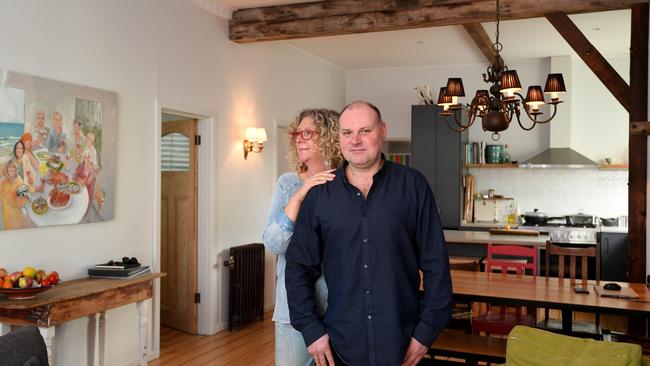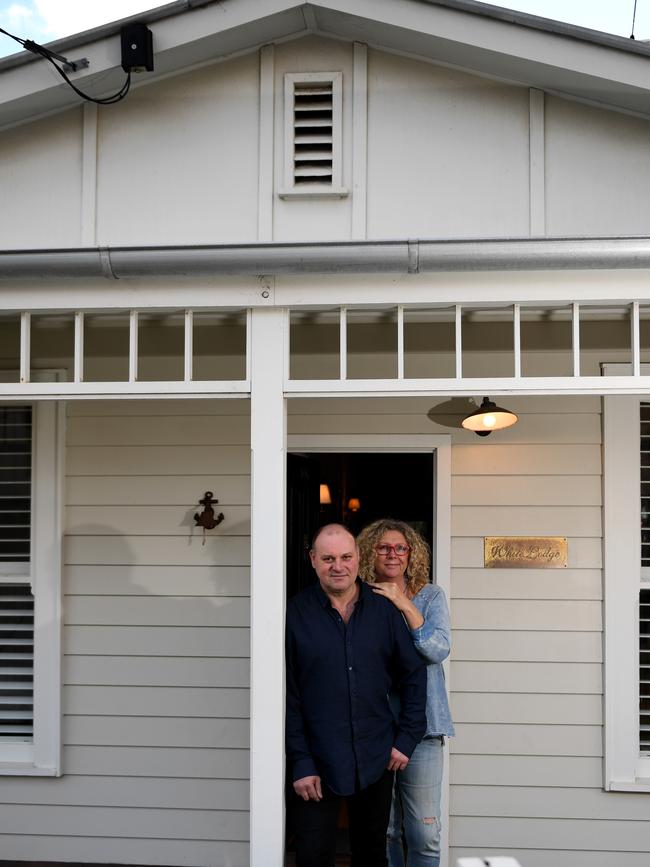Frankston short-stay owners to pay up, take out trash following new house rules
A crackdown on short-stay property owners in Frankston will force them to be liable for rubbish, noise, guest behaviour and parking. But angry hosts are calling the new laws “pointless”.

South East
Don't miss out on the headlines from South East . Followed categories will be added to My News.
Frankston’s short stay accommodation owners will have to take out the trash and fork out a $150 registration fee following a crackdown on irresponsible hosts.
The council’s new short stay law — which also makes hosts responsible for excess rubbish, guest behaviour, noise levels and provision of parking spaces — was passed on Tuesday, despite ruffling the feathers of some owners who thought it was sparked by just a small number of party pads.
Some have slammed the move, calling it a “knee jerk” reaction to the few hosts who turn a blind eye to guests holding wild backyard soirees.
Owners face an infringement of $500 to a conviction and court fine of up to $2000 for failing to pay the annual registration fee and must provide council with contact details of a designated person who can be contacted 24/7.
Registrations could be cancelled if council receives three substantiated
complaints concerning activities at the rental, or a single complaint so severe it warrants immediate action.
Robynne Young and Nic Grigg — who have operated a family friendly, 1950s weatherboard beachside property on Gould St for more than six years — told The Leader they were “understanding” of rules enforcing owner responsibility but didn’t know why a registration fee was necessary.
Ms Young said owners only received three days’ notice of a January meeting called to discuss the draft law.
She said a fee was inappropriate because “Airbnb and Stayz enforce owner responsibility anyway”.
“We already pay beachfront rates and our house is occupied for less than half a year,” she said.
“The council should be paying responsible homeowners like us who aren’t hosting parties and are positively contributing to the area’s tourism industry.”
Ms Young, who lives in South Yarra and rents out two holiday houses in Victoria on both Stayz and Airbnb, said she already paid “top dollar” for good quality bedding, decorations and crockery to make her house attractive to responsible holiday-makers only.
She called for a statewide code instead of individual councils bringing in rules which they “couldn’t enforce” properly.

“Frankston City Council won’t be able to enforce these rules themselves … it’s pointless,” she said.
“Meanwhile, we’re doing the right thing … we don’t charge dirt cheap rates which attract the big party groups.”
Stayz Corporate Affairs director Eacham Curry said the requirement to register short-term rentals with council would be “difficult and costly” to enforce and demonstrated a need for the State Government to “show leadership” on the issue.
MORE NEWS
WOMAN RUSHED TO HOSPITAL IN FRANKSTON CORONAVIRUS SCARE
MELBOURNE HOUSEWIFE RETURNS: BAYSIDE BUBBLE GOSSIP WRAP
SCHOOL TRIP POSTPONED FOLLOWING AMID CORONAVIRUS FEARS
“Improved neighbourhood amenity would be better achieved by a statewide code of conduct that is backed by a three-strikes disciplinary regime,” he told the Leader.
“This approach would be more effective than arbitrary curfews and rules for the use of swimming pools, balconies and outdoor areas.
“While Stayz understands the motivations behind the local law, this new regulation is a laundry list of arbitrary measures that will be difficult to enforce and will ultimately fail to address the community questions that are driving the changes in the first place.”
Frankston City Council Mayor Sandra Mayer acknowledged the majority of
short stay rental property owners “did the right thing” and managed their rentals with
respect for neighbours but the law was required to give council “greater powers” to respond to complaints.
“The new local law endeavours to set a standard of management for short stay
properties, currently not covered under any other legislation,” she said.
“It was created in response to noise and nuisance complaints from residents
neighbouring a small number of these properties.
“(It is expected to come into effect) in early February.”
